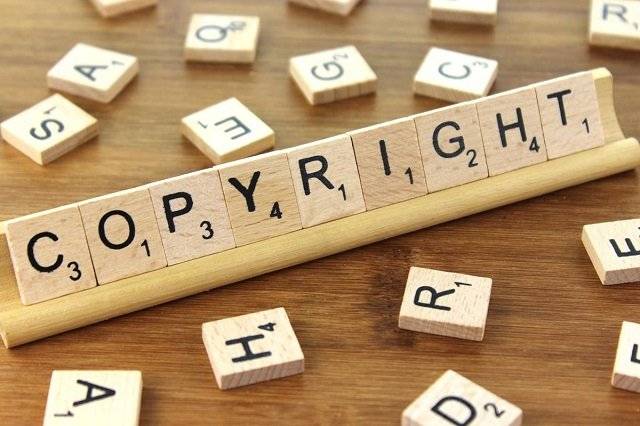
As discussed in Part 1 of this post Section 13(4) of the Copyright Act[1] recognizes that there is separate copyright in the underlying musical and literary works which are embodied in a cinematographic film or sound recording[2]. Therefore, underlying works do not lose their existence upon a sound recording being made but remain exclusively mutual[3]. But this question becomes pertinent because the Act grants both authors of the musical & literary work and authors of sound recording the right to communicate their work to public.
Parties’ akin radio stations, event management companies and other commercial establishment have time and again questioned the necessity to pay “double royalty” for broadcasting of sound recording. The Courts in recent past have held against the requirement of such “double license”[4] for broadcast of sound recordings. The said decisions of the courts have received mixed responses from the authors of musical & literary works and experts from the industry. Before we analyze the stand taken by the courts in this matter, let us consider few of such cases where the courts have upheld the rights of the music companies over sound recordings, to the exclusion of the lyricists and composers whose works were the underlying materials for the sound recording. These decisions by the court on the subject matter can be received as giving respite to commercial establishments questioning the need to pay double royalty or as reducing the chances of the authors of lyrics and musical work in the sound recording to obtain royalty for broadcast of their work integrated into a sound recording.
Indian case laws on derivative work and underlying works
-
Eastern India Motion Pictures v. The Indian Performing Right Society, AIR 1978 Cal 477
This Supreme Court landmark decision set a precedent in respect of sound recordings in the cinematographic films.
Facts of the case
IPRS (Appellant) on behalf of its members who were the composers of musical works, authors of literary and dramatic works and artists published tariff laying down the fees, charges and royalties that it proposed to collect for the grant of licences for performance in public of works in respect of which it claimed to be an assignee of copyrights and to have authority to grant such licences. Various associations of producers of cinematograph films, cinematograph exhibitors association of India and a number of persons who claimed to be the owners of such films including the sound track (collectively referred to as ‘Respondent’) filed objections challenging the right of the IPRS to charge fees and royalties in respect of performance in public of the musical works incorporated in the sound track of the films. The Respondent further contended that musical works prepared by the composers of lyrics and music were under contracts of service for utilization and incorporation of such work in the cinematograph films produced by the producers, in lieu of which all the rights which subsisted in the composers and their works including the right to perform in public became the property of the producers of the cinematograph films and no copyright subsisted in the composers that could be assigned to IPRS under section 33 of the Act;
The parties prior to approaching the Apex court had approached the Copyright Board to rule on the matter. The Copyright Board having considered the contentions of the parties held that in the absence of proof to the contrary, the composers of lyrics and music retained the copyright in their musical works incorporated in the sound track of cinematograph films provided and that they could assign the performing right in public to the IPRS. It further held that the tariff published by the IPRS was reasonable and the IPRS had the right to grant licences for the public performance of music in the sound track of copyrighted Indian cinematograph films and it could collect fees, royalties and charges in respect of those films. Aggrieved by this decision of the Copyright Board the Respondent preferred an appeal to the High Court of Calcutta which reversed the decision of the Copyright Board and held that unless there is a contract to the contrary, a composer who composes a lyric or music for valuable consideration for a cinematograph film does not acquire any copyright either in respect of film. The Hon’ble High Court clarifying its stance held that the composer can claim a copyright in his work only if there is an express agreement between him and the owner of the cinematograph film specifically reserving his copyright. IPRS being discontented with the decision of the Hon’ble High Court preferred an appeal to the Supreme Court of India.
Decision
The Apex court while deciding on the question whether the producer of a cinematograph film may successfully defeat the right of the composer of music or lyric by engaging him under a contract for service upheld the decision of the Hon’ble High Court. The Apex court observed that when a cinematograph film producer commissions or employs under a contract of service or apprenticeship a composer of music or a lyricist for a valuable consideration for the purpose of incorporation or absorption of the sound track in a cinematograph film, the cinematograph film producer becomes the first owner of the copyright therein and no copyright subsists in the composer of the lyric or music so composed unless there is a contract to the contrary between the composer of the lyric or music on the one hand and the producer of the cinematograph film on the other. The premise of this decision was that the copyright in films including the musical work incorporated in the song and the right to perform the work in public vest in their entirety in the cinematograph film producer as an integral unit.
Authored by the Media and Entertainment law division at BananaIP (BIP) Counsels.
References
[1] (4) The copyright in a cinematograph film or a [sound recording] shall not affect the separate copyright in any work in respect of which or a substantial part of which, the film, or, as the case may be, the [sound recording] is made.
[2] 2011 Decision, Infra note 3, at ¶ 1
[3] 2011 Decision, Infra note 3, at ¶ 1
[4] Requirement of licensee to obtain separate licenses from PPL and IPRS for the broadcast of sound recording.
Featured image source and attribution, here & here. Governing License : CC BY-SA 3.0



